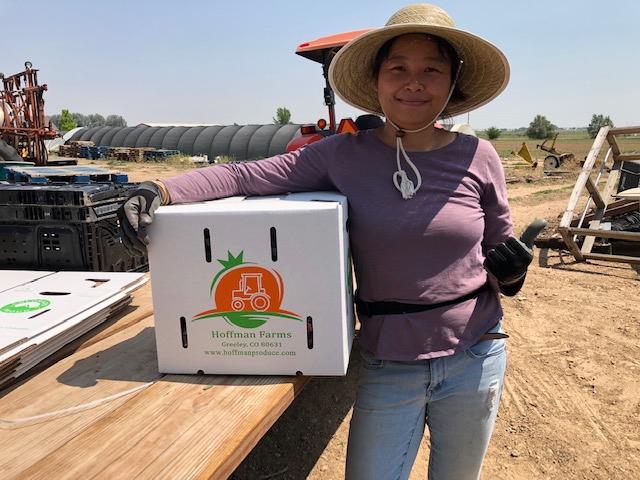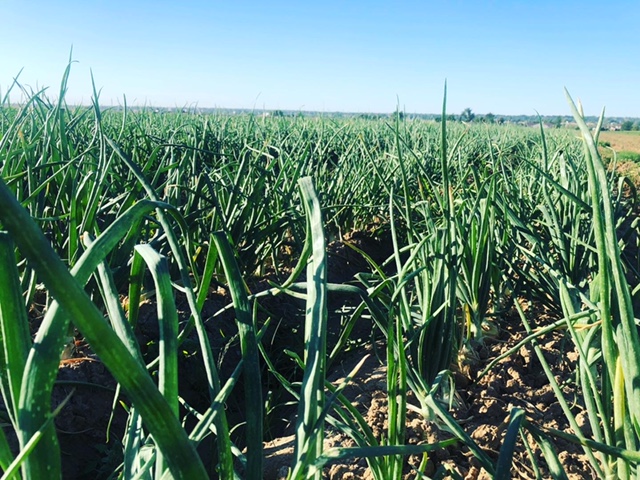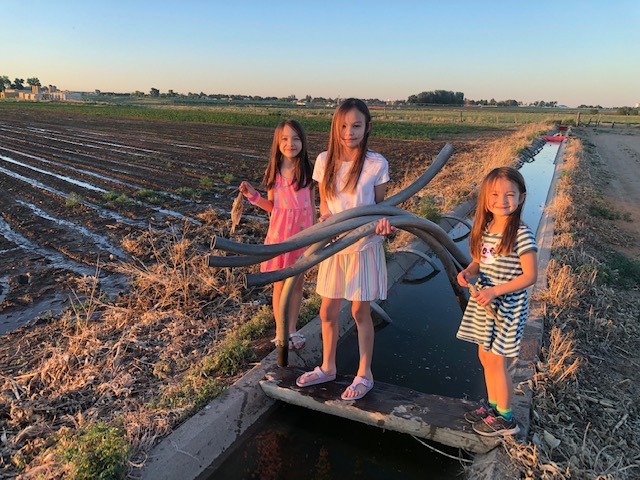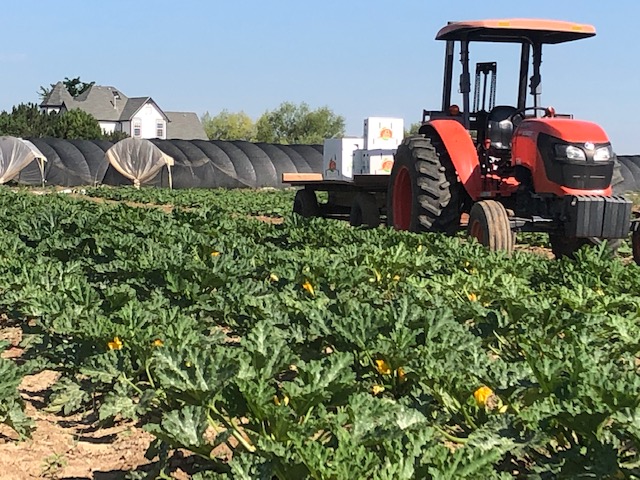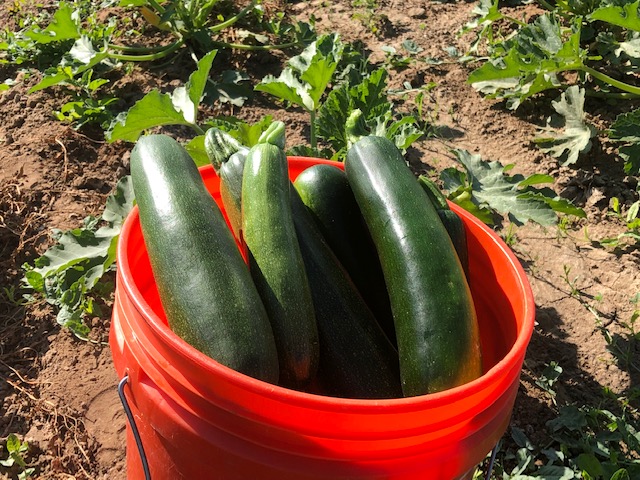Farming for Food Access with Hoffman Farms
Hanmei and Derrick Hoffman didn’t plan to turn farming into their full-time careers.
Their farm began as a family homestead. After immigrating to the United States in 2012, Hanmei started growing her own produce as a way to provide her family with healthy, affordable food. “Eventually, I started growing too much,” she explained. “I started taking the extra produce to farmers markets and learned about the demand for low-cost food.”
While the Hoffmans never aspired to become farmers, they both come from families with deep agricultural roots. In China, Hanmei’s family focused on small-scale farming that included growing staples such as rice and sweet potatoes and raising ducks and goats. Derrick’s family has been in Colorado for more than a century, beginning their journey during the sugar beet rush and growing their farming business to large-scale agricultural production over two generations. Derrick, however, preferred gardening over farming and set out on a new career path in IT. “Hanmei pulled me back into farming,” he shared. With decades of farming experience to lean on, Derrick’s upbringing proved to be a vital part of Hoffman Farms’ ability to succeed.
With affordability at the front of their minds, Hanmei and Derrick began focusing on a food production model that balances quality with cost-efficiency. They slowly began investing in equipment and hired a small team to help throughout the peak season. Derrick integrated lessons from his family’s farming business to create a plan for growth that prioritizes getting healthy food into the hands of neighbors of all income levels. “If you don’t have that background – say if you’re a small farmer who tries to lease a bigger plot of land – you don’t necessarily know what to do with it all,” said Derrick. The Hoffmans grew their farm from three to 100 acres, moved away from selling direct-to-consumer at farmers markets, and began selling to school districts and food programs dedicated to ending hunger. “Everything we do is wholesale. We fill a niche in farm-to-school programs,” said Hanmei. “Going into 2023, we’re probably going to be selling to the same places, but with Proposition FF passing last year, the new free school meals program, we’re going to start to see things change in 2024.”
In addition to local schools, Hoffman Farms provides affordable produce to organizations that include Food Bank of the Rockies, East Denver Food Hub, and Kaizen Food Rescue. They also provide produce for Boulder County Farmers Markets’ WIC CSA, a program that helps deliver farm-fresh produce to families participating in the WIC program.
“With all the inflation around food, we have to remember that food is a basic human right,” Hanmei added. Increasing tensions around housing affordability, healthcare, and basic living expenses are causing more families to experience food insecurity. With expanded SNAP benefits expiring in March, we expect to see higher demand for food that is both healthy for families and doesn’t break the bank. And while Hoffman Farms is experiencing the same inflated pricing impacting families and businesses across the country, their commitment to producing food that remains accessible to all is unwavering.
You can support the work of Hoffman Farms by purchasing their produce on Boulder County Farmers Markets’ online store. All items provided by Hoffman Farms are eligible for SNAP. Learn more by visiting our online store.
